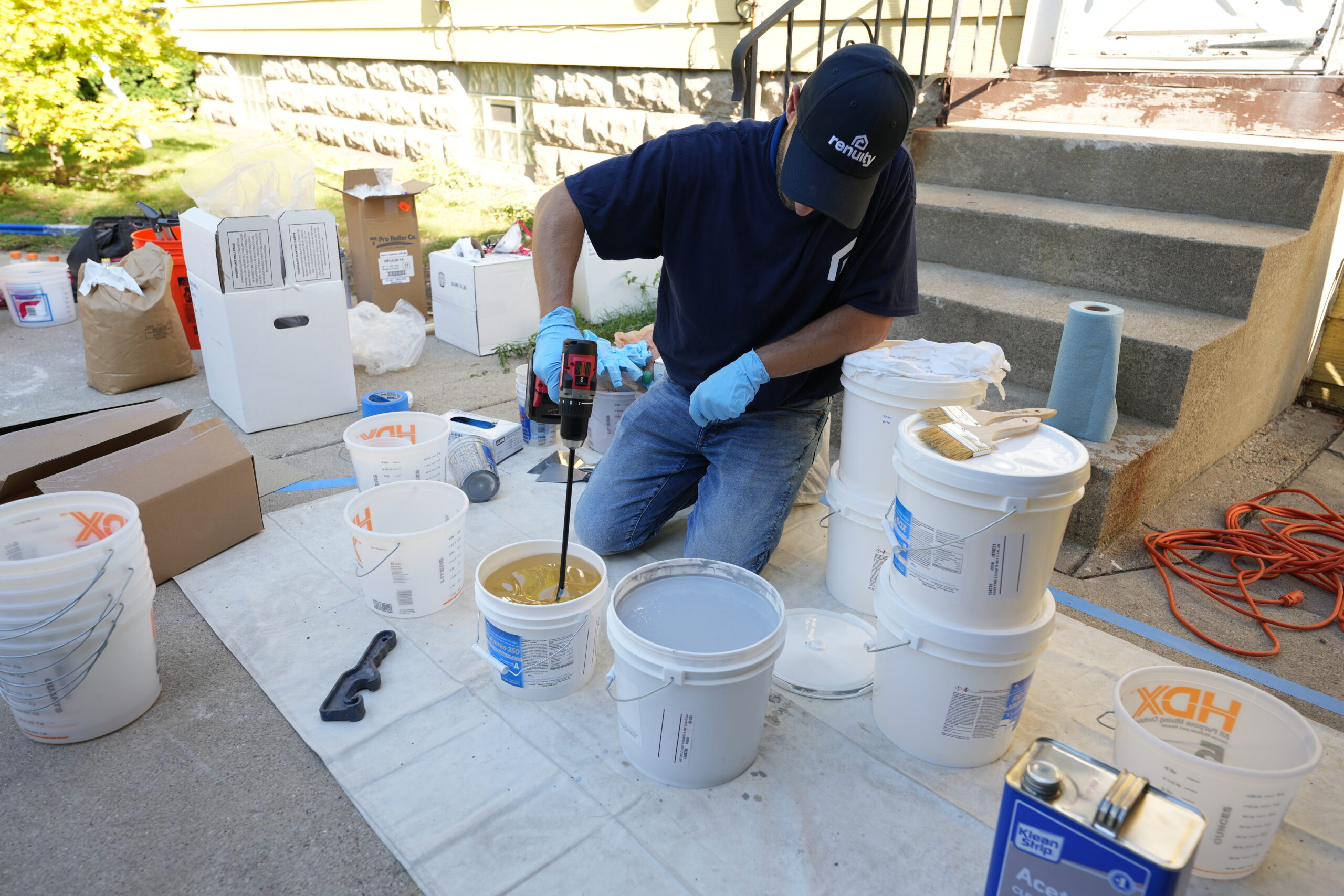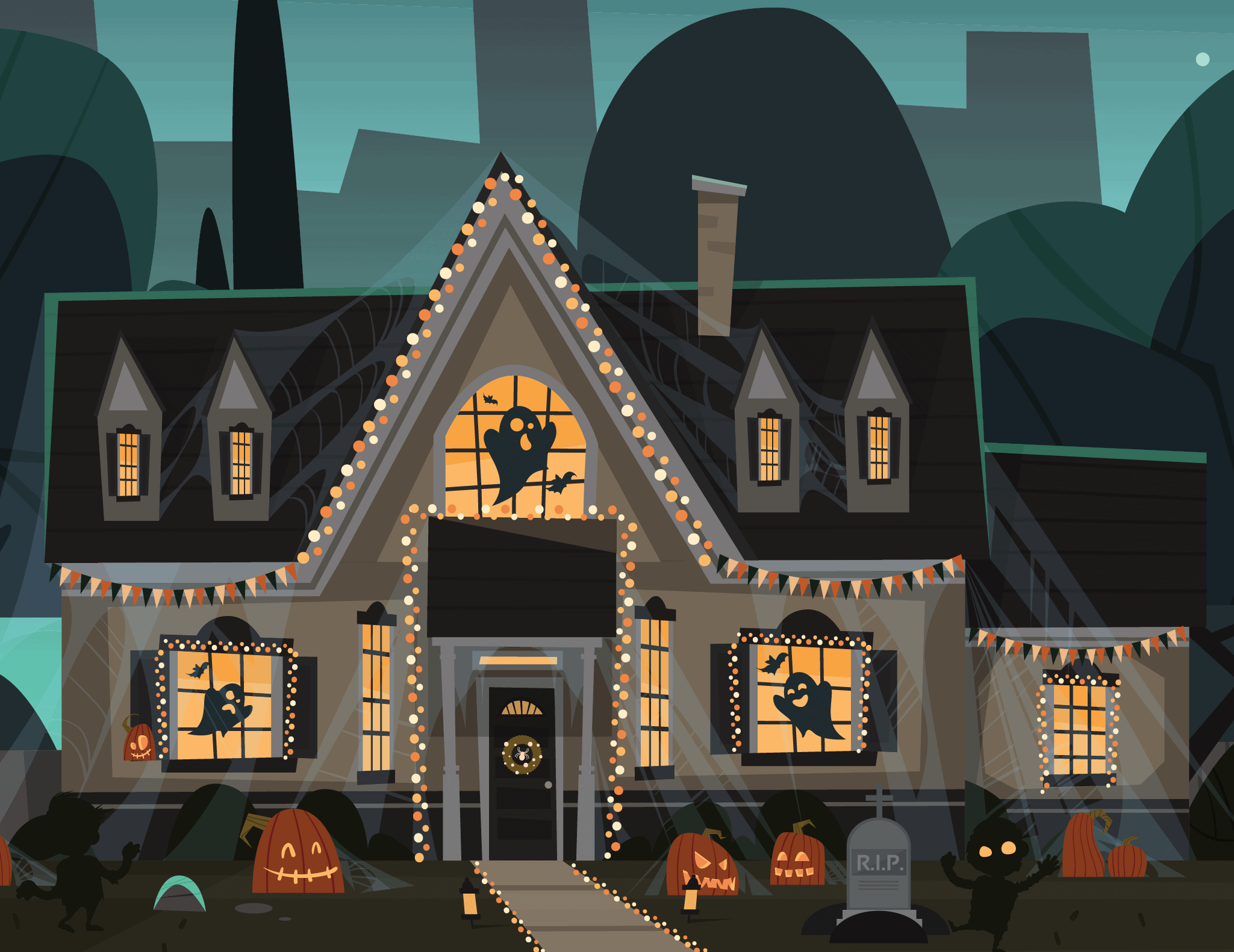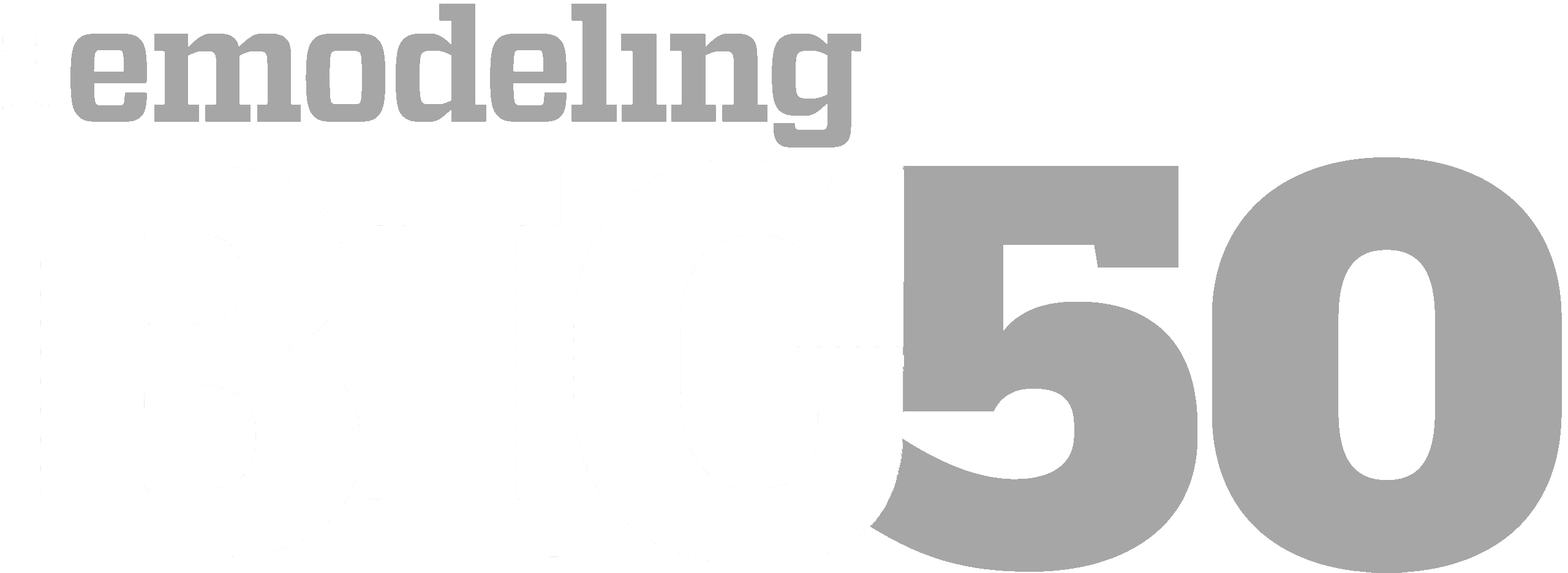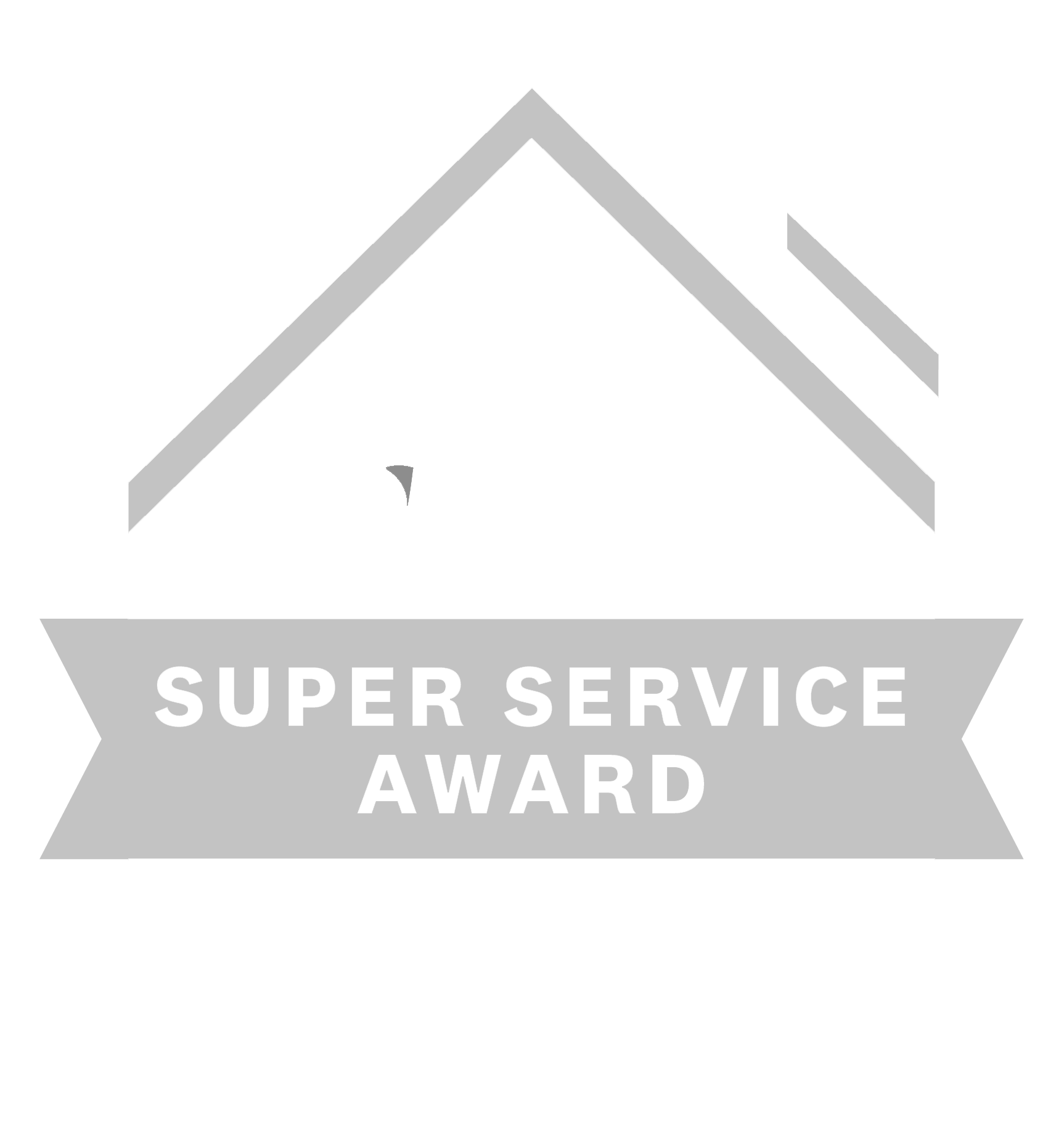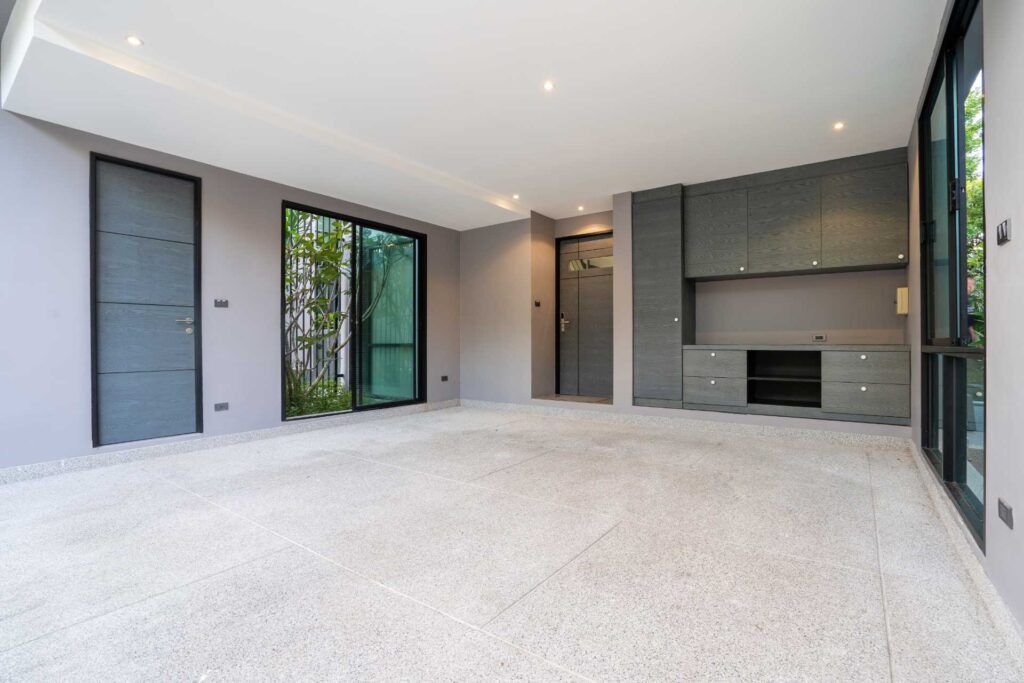A garage floor coating does more than improve the aesthetics of your space—it protects your floor from wear and tear, resists stains, and makes cleaning easier. When it comes to applying a garage floor coating, you have two main options: tackling the project yourself with a do it yourself garage floor kit or hiring a professional service for a long-lasting finish. While DIY may seem appealing at first glance, improper installation can lead to costly repairs and reapplications, making professional installation the smarter investment in the long run. Let’s dive into what you need to know about DIY versus professional garage floor coating.
What is Garage Floor Coating?
Garage floor coating involves applying a protective layer to your concrete floor to shield it from damage and enhance its appearance. The most common materials used are epoxy and polyurea coatings. Both options offer excellent durability and protection but differ in terms of cost, application process, and longevity.
DIY Garage Floor Coating Overview
Do it yourself garage floor coating typically involves using an epoxy-based kit available at home improvement stores. These kits are designed for homeowners who want to upgrade their garage floor without hiring a professional. While DIY epoxy coatings are budget-friendly, they come with significant challenges that can make the project more trouble than it’s worth.
Pros of DIY Garage Floor Coating
- Cost-Effective (Initially): DIY kits are cheaper upfront, making them a budget-friendly option for those with the skill and expertise to install their own coating.
- Accessible Tools: Most kits include all the necessary materials, such as epoxy, rollers, and instructions.
- Flexible Schedule: You can work on your project at your own pace without waiting for a contractor.
Cons of DIY Garage Floor Coating
- Time-Intensive: Preparing the surface and applying the coating can take several days, especially if multiple layers are required.
- Surface Prep Challenges: Properly cleaning, repairing, and etching the concrete is critical but can be difficult without professional-grade equipment. Learn more about how to repair and prevent garage floor cracks.
- Limited Durability: DIY epoxy coatings are generally less durable and prone to peeling, chipping, or discoloration over time, leading to costly reapplications.
- Environmental Sensitivity: Epoxy requires specific temperature and humidity conditions to cure properly, which can limit your application window.
- Costly Mistakes: Improper application can lead to bubbling, uneven surfaces, or poor adhesion, often requiring expensive repairs or professional intervention to fix.
Why DIY Can Be Less Desirable
While DIY garage floor coating kits are initially attractive due to their low cost, they often result in higher long-term expenses. Improper surface preparation, incorrect application techniques, or insufficient curing can compromise the durability of the coating. A poorly applied DIY coating may need to be stripped and reapplied by professionals, doubling your costs and effort. For a lasting solution, professional coatings eliminate these risks and provide peace of mind.
Professional Garage Floor Coating Overview
Professional garage floor coatings often use high-performance materials like polyurea or professionally applied epoxy. These coatings are installed by trained technicians with specialized equipment to ensure a flawless and long-lasting finish.
Pros of Professional Garage Floor Coating
- Superior Durability: Professional coatings, such as Renuity’s proprietary polyurea coatings, offer exceptional resistance to abrasion, chemicals, and UV rays.
- Expert Surface Preparation: Professionals use industrial equipment to repair cracks, remove stains, and create an optimal surface for adhesion.
- Custom Finishes: Choose from a variety of colors, textures, and finishes to match your garage’s style.
- Time-Saving: A professional team can complete the job in one to two days, minimizing disruption to your routine.
- Long-Term Value: While the initial cost is higher, the durability and low maintenance requirements of professional coatings make them more cost-effective over time.
Cons of Professional Garage Floor Coating
- Higher Initial Cost: Professional services typically range from $1,500 to $4,000 depending on the size of the garage and the type of coating.
- Scheduling Constraints: You’ll need to coordinate with contractors, which means scheduling your project beforehand.
Key Differences: DIY vs. Professional Garage Floor Coating
1. Cost
- DIY: Lower upfront costs but higher potential for expensive fixes and reapplications.
- Professional: Higher initial investment but offers better long-term value.
2. Durability
- DIY: Susceptible to peeling, chipping, and fading, especially in high-traffic areas.
- Professional: Engineered for maximum durability, withstanding heavy use and extreme conditions.
3. Appearance
- DIY: Basic finishes with limited customization options.
- Professional: High-quality finishes with options for custom colors, textures, and designs.
4. Application Process
- DIY: Requires significant time and effort, with a higher risk of mistakes.
- Professional: Fast, efficient, and precise installation ensures optimal results.
5. Maintenance and Longevity
- DIY: May require frequent touch-ups or recoating within a few years.
- Professional: Long-lasting performance with minimal maintenance.
Choosing the Right Option for Your Garage
When deciding between a do it yourself epoxy garage floor kit and a professional garage floor coating, consider the following factors:
- Budget: While DIY may seem cheaper initially, professional coatings save money in the long run by reducing the need for repairs and reapplications.
- Skill Level: DIY projects require patience, precision, and some experience with home improvement tasks. Mistakes can be costly and time-consuming.
- Durability Needs: If your garage sees heavy use or houses valuable equipment, a professional coating is the better choice.
- Time Constraints: DIY projects can take several days, while professionals complete the job quickly and efficiently.
Tips for a Successful Garage Floor Coating Project
- Prepare the Surface: Proper surface preparation is crucial for adhesion, whether you choose DIY or professional. Learn more about how to protect your garage floor.
- Choose the Right Material: For heavy-duty performance, professional polyurea coatings are a top choice.
- Follow Instructions: If you opt for DIY, carefully follow the manufacturer’s guidelines to avoid common pitfalls.
Deciding between DIY and professional garage floor coating depends on your budget, time, and desired results. While do it yourself garage floor kits may initially save money, they often lead to hidden costs and challenges that can outweigh the benefits. Professional coatings, like Renuity’s polyurea systems, offer superior durability, aesthetics, and long-term value, making them the ideal choice for most homeowners. By investing in professional installation, you’ll achieve a flawless, lasting finish that enhances the functionality and appearance of your garage.
